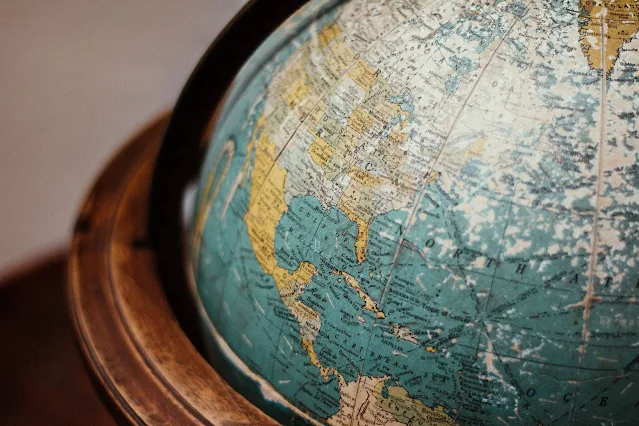The book Les Scénarios noirs de l’armée française by Alexandra Saviana presents a series of hypotheses about potential conflicts involving France and its neighbors by 2030. Among these scenarios, one of the most striking concerns a supposed war between Algeria and Morocco in August 2025, just before the major Franco-Moroccan military exercises "Chergui 2025" scheduled for September. This highly speculative vision falls within a tradition of alarmist narratives often disconnected from the military and strategic realities of the region.
A biased view of the Algerian-Moroccan balance of power
One of the book’s scenarios describes an alleged Algerian offensive on Oujda, which would result in a "resounding" failure for Algeria. This hypothesis is based on a flawed perception of the military balance between the two countries.
The Algerian army: a vastly superior force
Contrary to the book’s implications, Algeria possesses one of the most powerful armies in Africa and the Arab world, with capabilities far superior to those of Morocco. According to the Global Firepower 2024 ranking, Algeria ranks ahead of Morocco in overall military strength, with:
- A significantly larger armored fleet (T-90, BMPT Terminator, etc.),
- Undisputed air superiority thanks to the Sukhoi Su-30MKA and MiG-29M,
- Advanced air defense systems (S-300 and S-400),
- A better-equipped navy, with Kilo-class submarines and modern frigates.
Despite Morocco’s recent modernization efforts, it remains significantly behind, particularly in air defense and strategic autonomy. Therefore, the assumption that a direct confrontation would favor Morocco is unrealistic.
An ignored operational context
Saviana’s book overlooks the operational preparedness of Algerian forces and their military doctrine, which is based on a defensive and deterrent approach. Algeria has never initiated a direct conflict with a neighbor and has always prioritized territorial defense and border protection.
Moreover, the idea of a war breaking out just one month before the Franco-Moroccan military exercises in September 2025 raises questions: is this merely a coincidence in the book, or does it reflect an attempt to justify an increased military presence in North Africa?
The "Chergui 2025" exercises: preparation for a planned conflict?
The book suggests the possibility of an escalation in August 2025, shortly before the "Chergui 2025" joint exercises between France and Morocco. While joint military drills are common, the timing of these maneuvers raises suspicions about a possible intent to simulate scenarios involving Algeria.
This hypothesis raises several questions:
- Are these exercises meant to prepare for a response in case of conflict?
- Are they a show of force intended to deter Algeria from acting in the region?
- Do they aim to strengthen Morocco’s integration into a military alliance against Algeria?
Given the regional geopolitical context, with U.S. support for Morocco’s stance on Western Sahara and Rabat’s growing military partnerships with NATO, these exercises could be a key element of a containment strategy against Algeria.
Strategic alarmism serving a containment policy
The book’s scenarios are not neutral—they reflect a French perspective that anticipates crises based on its own interests. The portrayal of a "weakened" or "defeated" Algeria aligns with a broader strategy to isolate the country on the international stage.
Why such insistence on an Algerian collapse?
Algeria’s geostrategic position, independent foreign policy, and refusal to align with certain Western agendas make it a unique player in North Africa. The fear of a strong Algeria, with a powerful army and growing regional influence, explains why some think tanks promote scenarios depicting it as vulnerable or in decline.
In reality, Algeria remains a stable country with strong institutions and an army capable of defending its territory. The "purges" mentioned in the book are, in fact, internal restructuring efforts aimed at modernizing and enhancing military efficiency. Far from being a sign of weakness, these reforms demonstrate an adaptation to new security challenges.
Conclusion: between fiction and military reality
Les Scénarios noirs de l’armée française illustrates a biased perspective that underestimates Algeria’s resilience and military strength. By presenting scenarios in which Algeria emerges weakened from a hypothetical conflict with Morocco, the book disregards the military and strategic realities that make Algeria a key power in North Africa.
Additionally, the correlation between the alleged conflict’s timing and the Franco-Moroccan military exercises in September 2025 raises questions about the true nature of these maneuvers and their potential role in a broader deterrence strategy.
Ultimately, these projections reflect more wishful thinking than a serious analysis based on concrete facts. Far from the chaos and fragmentation described in such strategic literature, Algeria continues to assert its sovereignty and position itself as a central actor in the regional balance.
Belgacem Merbah

Comments
Post a Comment